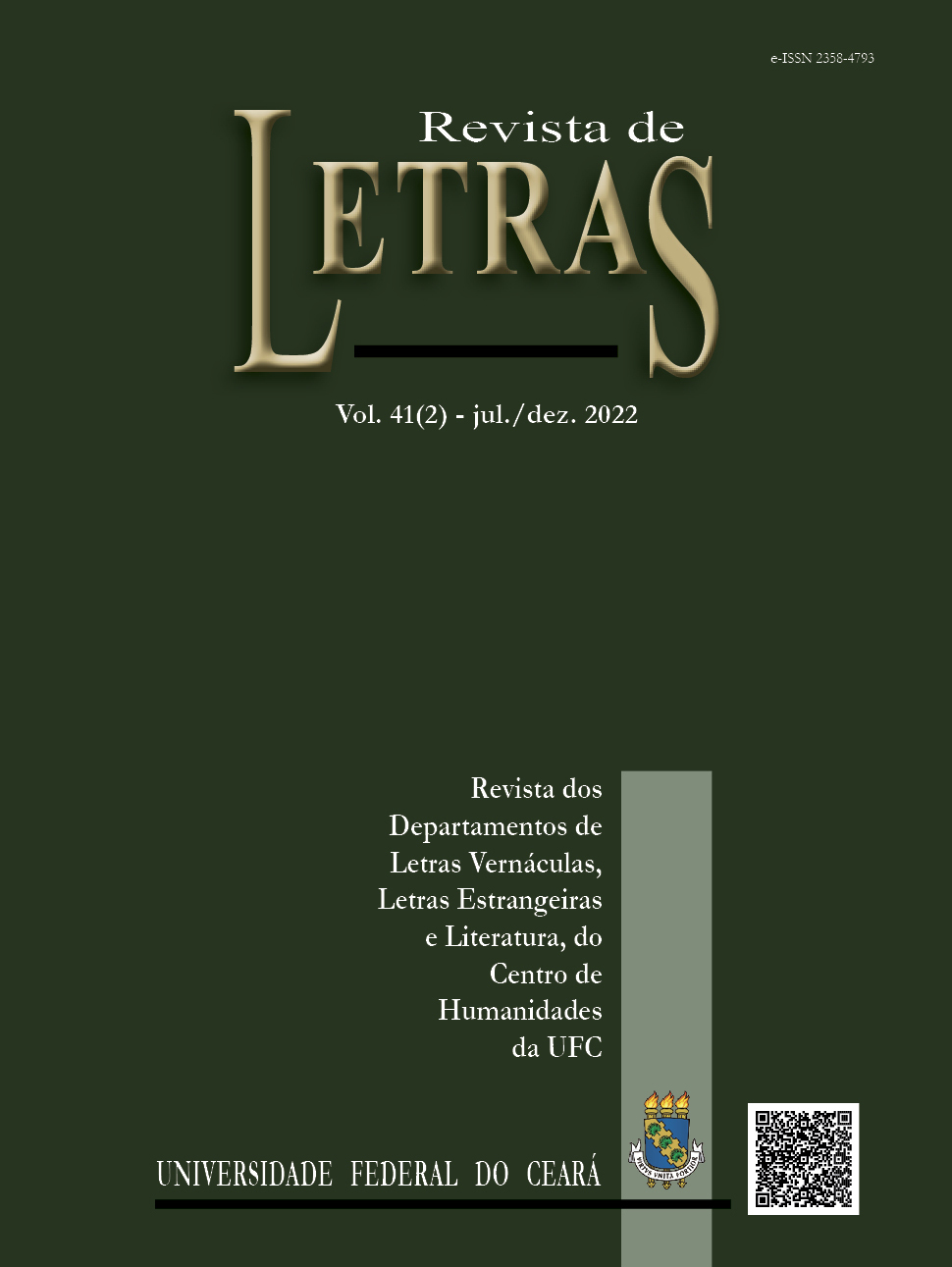CAPACIDADES DE LINGUAGEM (NÃO) REVELADAS POR ALUNOS AUTISTAS NA LEITURA DE CONTOS MARAVILHOSOS
DOI:
https://doi.org/10.36517/revletras.41.2.2Abstract
the objective of this article is to present a sequence of activities in order to investigate the language skills (not) presented by two autistic students in reading activities based on the wonderful short story genre in a regular 7th grade elementary school class. The study is linked to an action-research in progress, and is part of the applied field of language studies, based on two theoretical axes. The first is constituted by the epistemological and methodological reflections of Sociodiscursive Interactionism, above all, in the conceptions of language capacity. The second axis approaches the constitution of the autistic subject in the light of the vygostskina historical-cultural perspective. As main results, we highlight the difficulties of autistic students, especially when they are led to develop interpretations of deeper layers of the texts they read, such as identifying the presence of linguistic elements that mark the different perceptions or points of view present in direct and indirect discourses. Another diagnosed aspect is related to the development of language in the context of the classroom, and shows the way in which their singularities are manifested in relation to their self-control regarding impulsive, stereotyped and repetitive movements.
Downloads
Downloads
Published
How to Cite
Issue
Section
License
Autores que publicam nesta revista concordam com os seguintes termos:- Autores mantêm os direitos autorais e concedem à revista o direito de primeira publicação, com o trabalho simultaneamente licenciado sob a Licença Creative Commons Attribution que permite o compartilhamento do trabalho com reconhecimento da autoria e publicação inicial nesta revista.
- Autores têm autorização para assumir contratos adicionais separadamente, para distribuição não-exclusiva da versão do trabalho publicada nesta revista (ex.: publicar em repositório institucional ou como capítulo de livro), com reconhecimento de autoria e publicação inicial nesta revista.
- Autores têm permissão e são estimulados a publicar e distribuir seu trabalho online (ex.: em repositórios institucionais ou na sua página pessoal) a qualquer ponto antes ou durante o processo editorial, já que isso pode gerar alterações produtivas, bem como aumentar o impacto e a citação do trabalho publicado (Veja O Efeito do Acesso Livre).

.png)





.png)
